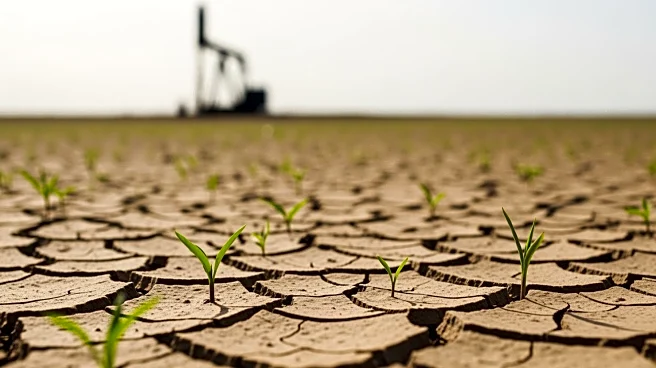What's Happening?
In South Africa, the agricultural sector is voicing opposition to new fracking legislation proposed by the Department of Forestry, Fisheries and the Environment. The draft regulations, which require public comment by December 7, have raised concerns due
to their disjointed nature, with multiple departments proposing overlapping rules. The agricultural community fears that fracking could deplete and contaminate freshwater resources, essential for farming. The recent appointment of Willie Aucamp as the new minister adds uncertainty to how these regulations will be handled.
Why It's Important?
The introduction of fracking regulations in South Africa poses significant risks to the agricultural sector, which relies heavily on freshwater resources. Fracking is known for its high water consumption and potential to pollute water supplies, which could jeopardize agricultural productivity and food security. The sector's resistance highlights the need for coordinated policy-making that considers environmental and socioeconomic impacts. The outcome of this legislative process will affect the balance between energy development and agricultural sustainability in South Africa.
What's Next?
The agricultural sector is seeking an extension on the comment period to better assess the complex regulations. Stakeholders are calling for a centralized approach to policy-making to ensure informed contributions. The new minister's stance on fracking will be crucial in determining the future of these regulations. Continued advocacy from agricultural unions and environmental groups is expected, as they push for policies that protect water resources and agricultural interests.
















